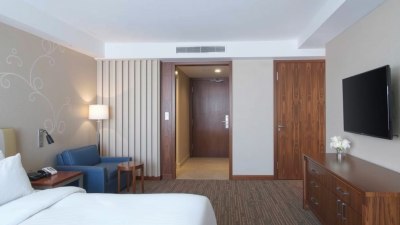Electricity Basics for Travelers Heading to Belgium
Learn essential electricity tips for a smooth travel experience in Belgium.

Image by user17364411 on Freepik
When traveling to Belgium, understanding the basics of electricity can be quite important. Whether you're planning to charge your devices, use appliances, or simply understand how power works in another country, being informed will help you avoid any inconveniences during your visit. This guide will cover essential information regarding the electrical system in Belgium, including voltage, frequency, plug types, and more.
1. Understanding Voltage and Frequency
In Belgium, the standard voltage is 230 volts, and the frequency is 50 Hz. This is an important factor to consider when using your devices. If you’re coming from a country with a different voltage, such as the United States (which typically operates on 120 volts), you will need to check if your devices can handle 230 volts. Most modern electronics such as phone chargers and laptops are designed to work with a wide range of voltages, so they may be fine. However, it’s always best to check the specifications on your device or use a voltage converter if necessary.
2. Types of Plugs Used in Belgium
Belgium primarily uses Type C and Type E plugs. Type C plugs have two round prongs and are commonly found throughout Europe. Type E plugs, on the other hand, have two round prongs as well but feature an additional hole for grounding. If your devices are not compatible with these plug types, you will need a plug adapter to use your electronics safely.
3. Buying Plug Adapters
Plug adapters can usually be found at airports, electronics stores, or even local supermarkets in Belgium. It’s a good idea to purchase a universal travel adapter that can accommodate different types of plugs, making it more versatile for any future travels you may have. Additionally, check if your adapter supports the voltage requirements of your devices.
4. Charging Devices in Hotels and Accommodations
Most hotels and accommodations in Belgium will provide a convenient way to charge devices through their electrical outlets. However, it’s wise to check ahead if their outlets are compatible with your electronics. Some accommodations may have limited socket availability, so if you are traveling with multiple devices, consider bringing a power strip (with a voltage transformer if needed) to accommodate all your devices at once.
5. Safety Precautions
Staying safe while using electricity is crucial. Avoid overloading outlets, as this can lead to electrical failures or fire hazards. Always use your devices in a dry area, and do not use them if they have any visible damage. Lastly, if you're unsure about any electrical setup, it’s best to ask a local or your accommodation provider for help.
6. Mobile Charging Options
As travelers often rely heavily on their mobile devices for navigation, communication, and photography, having a mobile charging option can be very beneficial. Portable power banks are a great way to ensure your devices remain charged, especially when exploring cities or during day trips. Many public transport stations and airports also have charging stations available for public use, though availability may vary.
7. Using High-Power Appliances
If you plan to use high-power appliances such as hairdryers or straighteners, be cautious as many of these devices draw a lot of energy and may not perform well on lower voltage or may require a voltage converter. Check your appliance's specifications to see if they support dual voltage (220-240V). If not, you will need a transformer to avoid damaging your device.
8. Appliances and Gadgets Advice
For travelers looking to stay connected, WiFi is widely available in Belgium. Many cafes, restaurants, and public places offer free WiFi access. If your devices can connect to a WiFi network, you may be able to use voice and video applications for calls, thereby saving on international roaming costs. Additionally, consider downloading necessary applications before arriving in Belgium, including maps and navigation apps that can be used offline.
9. Emergency Numbers and Electrical Safety
In Belgium, knowing who to contact during an electrical emergency can be key to ensuring your safety. The emergency number for fire or electrical incidents is 112, and it's vital to have proper emergency contact information written down and easily accessible during your travels. Additionally, familiarizing yourself with basic electrical safety tips can prevent issues while you’re away from home.
10. Being Prepared
Understanding the electricity basics in Belgium ensures that you are prepared for your travels, making your stay more enjoyable. From knowing the right voltage to getting the correct adapters, being well-informed will help ensure you capture all those travel moments without the hassle of dead devices or electrical issues. Electricity may not be the most exciting topic when planning a trip, but it can significantly affect your travel experience. Take the time to prepare, and you'll have one less thing to worry about as you explore the beautiful sights and sounds of Belgium.











